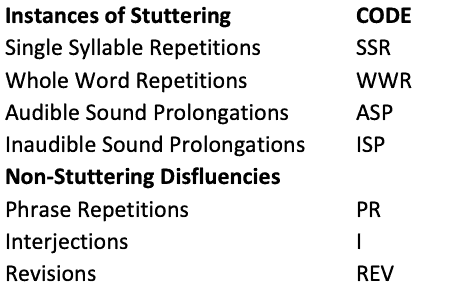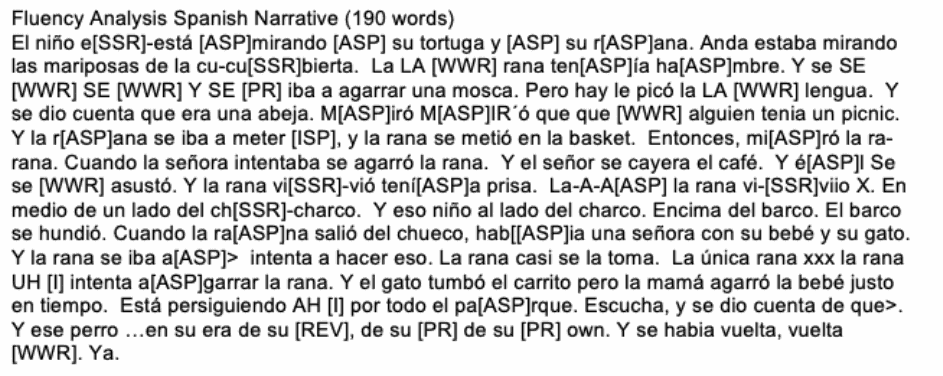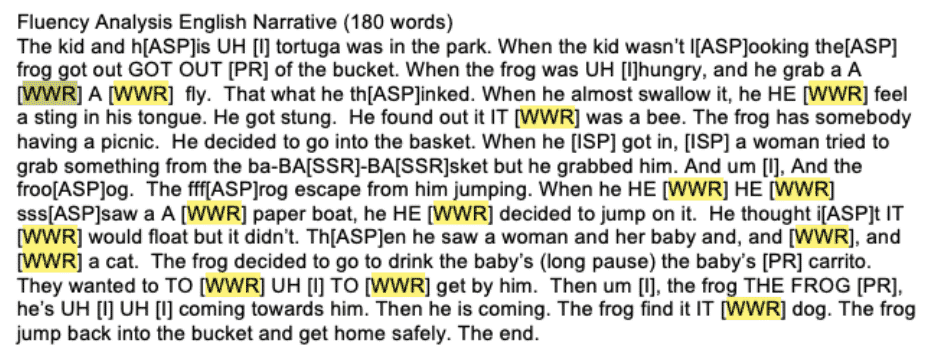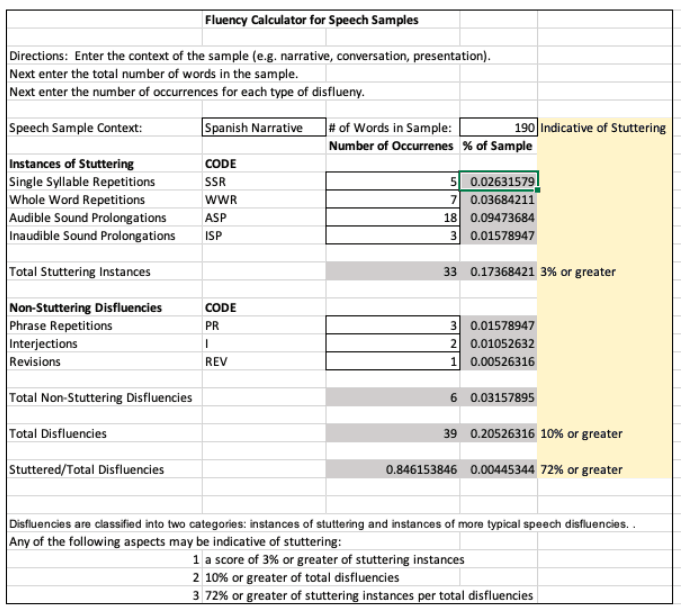Welcome back to our series on report writing. Today, we are going to talk about fluency assessment tables that autocalculate. Check out our first post in the series on setting up a report template.
Let’s face it. Fluency assessments take some time. We need multiple samples from different contexts (e.g. conversational samples, reading samples, …) and then we need to identify and code the disfluencies. Then we need to calculate the frequency of the disfluencies. When we use a fluency assessment calculator that auto calculates, we save bundles of time. Here’s my approach.
Once my language samples are transcribed, I copy them and paste them into my fluency section. I then listen through my recording again to be sure I capture the disfluencies accurately. I use the following coding system:

For a discussion of these categories, refer to the Yaruss article for more information on Clinical Measurement of Stuttering Behaviors.
I end up with something that looks like this:
Then I can use the FIND function in word to search for each code. As I search, they get highlighted and are easy to count quickly.
Then I open my Fluency Calculator for Speech Samples and plug in my numbers.
And that’s it for fluency templates! Before I leave the topic of stuttering, however, I want to acknowledge that fluency assessments and fluency therapy does not solely address the disfluency. With evidence-based practices and humanity on our side, we need to address the Affective (Feelings & attitudes), Behavioral (Avoidance, tension, struggle) and Cognitive (Thoughts, self-evaluation) (Yaruss, 2006) aspects of a person’s fluency.
Next up: Track Every Move







Excellent study but a bit dated. I did appreciate the calculator and the actual visual use of the technique in both APA and student’s vocabulary in English context. Thank you so very much for the useful tool!
I agree it is dated but certainly still relevant. Glad you liked the calculator!
This is a very helpful article. It is easy for parents to understand and tabulating the results in this manner makes it very clear. Thank you for this great tip!
You are very welcome. This will be our topic for our March SLP-Impact masterclass so tune in then!